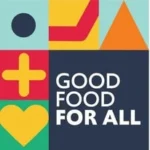At the heart of the 2030 Agenda was a promise to prioritise two goals: to eradicate poverty and end hunger and malnutrition in all their forms. While global hunger had been declining since 2000, the absolute number of hungry people remains high at 690 million people in 2019. This year, COVID-19 may increase this number by up to 132 million, highlighting that we are off track to achieve SDG2 by 2030.
On this page, we want to help gather resources and actions for advocacy on the new research by Ceres2030, FAO and ZEF, released on 13 October ahead of World Food Day 2020 and revealing that by doubling their investments between now and 2030, donors could help end hunger, double smallholder farmer incomes and protect the climate.
The research represents a coming together of two projects:
ZEF and FAO. 2020. Investment costs and policy action opportunities for reaching a world without hunger (SDG2). Rome and Bonn.
Ceres2030: Sustainable Solutions to End Hunger, led by Cornell University, IFPRI and IISD: synthesized research results in 10 research papers authored by 77 scientists, researchers and librarians in 23 countries; published concurrently on Oct.12 in Nature Plants, Nature Sustainability, Nature Machine Intelligence and Nature Food, and assembled in a comprehensive package online: Sustainable Solutions to End Hunger
Both were presented during an event series hosted by the German Federal Ministry for Economic Cooperation and Development (BMZ), during which donors also pledged new commitments on the occasion of the GAFSP replenishment period launch.
How much does it cost to end hunger?
Ceres2030 and FAO-ZEF used different methodologies but arrived at the same conclusion that donors should double their spending – which translates to an additional $14 billion on average each year between now and 2030. FAO&ZEF estimate that to create a world without hunger by 2030 would require total annual investments in a range of about $ 39 to 50 billion. The types of these additional investments include establishing new social protection programmes including to address issues such as COVID-19 related hunger and malnutrition.
 All studies recommend that donors make interventions that are evidence-based and designed to support each other, including investing in agricultural R&D, supporting social protection programs that provide food or cash to those in need, and driving inclusion, such as through improving female literacy and providing training for rural youth. Spending should focus on where the need is greatest – primarily sub-Saharan Africa, and also south Asia
All studies recommend that donors make interventions that are evidence-based and designed to support each other, including investing in agricultural R&D, supporting social protection programs that provide food or cash to those in need, and driving inclusion, such as through improving female literacy and providing training for rural youth. Spending should focus on where the need is greatest – primarily sub-Saharan Africa, and also south Asia
Ceres2030 – Categories of Interventions
The additional investment needs to be distributed across the following three categories of interventions. See the recommendations for each categories below.

Empower the Excluded
- Enable participation in farmers’ organisations.
- Invest in vocational programs for rural youth that offer integrated training in multiple skills.
- Scale up social protection programs.
On the Farm
- Investment in extension services, particularly for women, must accompany research and development (R&D) programs.
- Agricultural interventions to support sustainable practices must be economically viable for farmers.
- Support adoption of climate-resilient crops.
- Increase research on water-scarce regions to scale up effective farm-level interventions to assist small-scale producers.
- Improve the quantity and quality of livestock feed, especially for small and medium-scale commercial farms.
Food on the Move
- Reduce post-harvest losses by expanding the focus of interventions beyond the storage of cereals, to include more links in the value chain, and more food crops.
- Invest in the infrastructure, regulations, services and technical assistance needed to support SMEs in the value chain.
Resources and Actions to help amplify the research
- Social tiles for promotion of key messages (in EN, DE, FR, ES)
- Watch the recording of the 13 October events
- Ceres2030 Summary Report
- Ceres2030 papers
- Joint FAO-ZEF report
- World Food Day 2020 activities
- Good Food For All video for download
- Good Food For All Website with resources
- Tag: @FAO @Ceres2030 @ZEFbonn @IFPRI @IISD_news @CornellGlobal @BMZ_Bund @1Worldnohunger

“The study comes at a critical time. The dramatic consequences of the COVID-19 crisis are exacerbating the suffering of the most vulnerable, especially in the poorest regions of the world. For them, the COVID-19 pandemic is also a hunger pandemic. With this in mind, next year the UN Food Systems Summit will launch bold new actions, solutions and strategies to deliver progress on all 17 Sustainable Development Goals, each of which relies on healthier, more sustainable and more equitable food systems.” – say UN Special Envoy Dr Agnes Kalibata & German Federal Minister Dr Gerd Müller.







RESOURCE: DOWNLOAD
Message 1 – EN, DE, FR, ES (no image version)

RESOURCE: DOWNLOAD
Message 2 – EN, DE, FR, ES (no image version)

RESOURCE: DOWNLOAD
Message 3 – EN, DE, FR, ES (no image version)
RESOURCE: DOWNLOAD
Message 4 – EN, DE, FR, ES (no image version)

RESOURCE: DOWNLOAD




